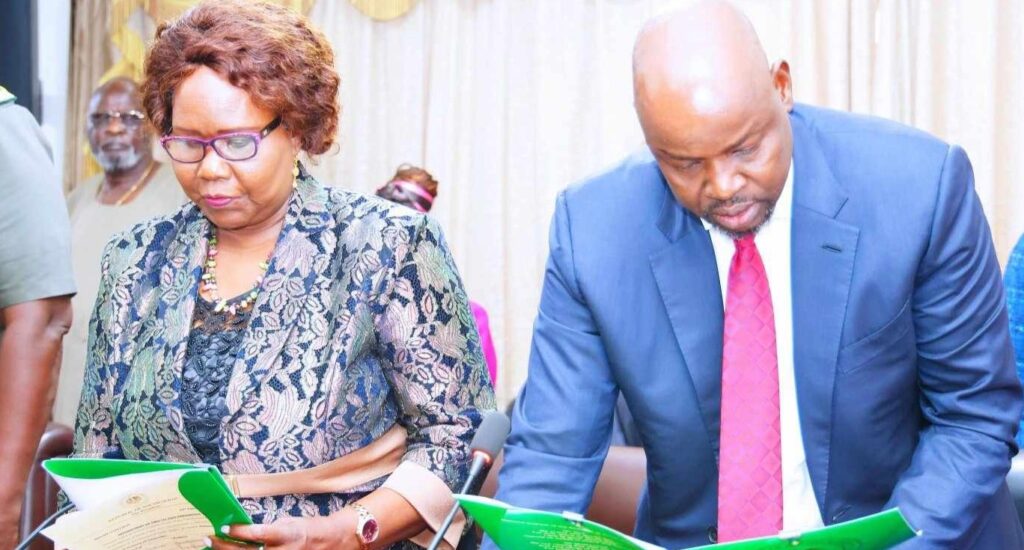Dr. Benjamin Bol Mel and Josephine Joseph Lagu were sworn in as South Sudan’s new vice presidents, less than 48 hours after being appointed by President Salva Kiir on Monday night.
South Sudan has five vice presidents as part of a 2018 peace agreement.
One of the vice presidents removed from office is James Wani Igga, a veteran politician, who has held the position since 2013 and has been the deputy chair of the ruling SPLM Party.
The other is Hussein Abdelbagi Akol, from an opposition alliance (SSOA), which is part of the 2018 peace deal.
Akol has been appointed the minister for agriculture, replacing Josephine Joseph Lagu from the same SSOA alliance, who now becomes a vice president for the service cluster.
Benjamin Bol Mel, who was sanctioned by the US in 2017 for alleged corruption, has been appointed to replace Igga as vice president for the economic cluster.
Mel, previously a special presidential envoy for special programs, has been the subject of speculation that he was being fronted as a potential successor to President Kiir.
During the swearing-in ceremony, President Kiir acknowledged the economic hardships facing the country’s citizens and directed Vice President Dr. Bol Mel to lead transformative reforms in the economic sector.
Kiir emphasized the need for economic diversification and a focus on agriculture to improve food security.
In his inaugural address, Vice President Bol Mel expressed deep gratitude to President Kiir for the trust and confidence placed in him.
He vowed to serve the nation with loyalty, commitment, and dedication, stressing his determination to act without fear or failure in order to benefit the people of South Sudan and the SPLM.
“I am committed to advancing our economic agenda and working closely with H.E. to ensure South Sudan secures its rightful place in the region,” Dr. Bol Mel stated.
Meanwhile, Josephine Lagu conveyed her sincere appreciation to President Kiir for the opportunity to serve. “I pledge not to disappoint the people of South Sudan,” she said.
Lagu emphasized the collective responsibility of both the government and citizens to ensure the provision of essential services and improve living standards across the country.




